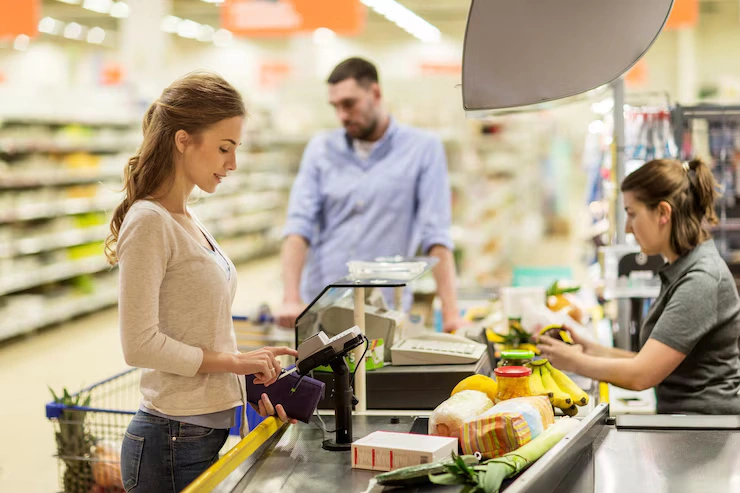Introduction
Owning a supermarket in the U.S. comes with real risks, and without proper supermarket insurance, one unexpected event could put you out of business.
You’re not just selling groceries, you’re managing staff, handling deliveries, keeping customers happy, and making sure the shelves stay full.
But what happens when something unexpected hits?
- A customer slips on a wet floor
- A freezer breaks down overnight and ruins $10,000 worth of stock
- A storm damages your storefront
One incident like that can wipe out months of hard work — unless you’re covered.
That’s where supermarket insurance comes in.
It’s designed specifically to protect grocery store owners from real-world risks that can shut you down or drain your cash flow.
In this article, you’ll learn:
- What supermarket insurance covers (and why it matters)
- How it can save you thousands in legal or repair costs
- What to look for in a policy that actually protects your store
If you own a supermarket, this might be the most important thing you read today.
Let’s make sure your business is protected — before you actually need it.

What is Supermarket Insurance?
Supermarket insurance refers to a specialized insurance policy tailored for grocery stores, supermarkets, and food retailers. These policies are designed to provide protection against a variety of risks specific to running a grocery business.
Unlike general business insurance, supermarket insurance covers scenarios such as food contamination, theft, accidents involving customers or employees, and damage to property. This insurance package is essential for protecting both the business’s physical and financial assets.
The key advantage of supermarket insurance is that it provides a comprehensive safety net, ensuring that any unexpected event, such as a fire or a lawsuit, does not jeopardize the business’s stability.
Why Supermarket Insurance is Crucial for Your Business
The grocery store business is inherently risky. Supermarkets must manage perishable goods, deal with large volumes of customers daily, and maintain a clean, safe environment.
In addition to these risks, grocery store owners also have to consider the potential for damage to property, injuries to employees or customers, and the ever-present threat of theft.
Here’s a quick overview of major risks supermarkets face and how insurance addresses them:
| Risk | Potential Impact | Insurance Solution |
| Food spoilage | Loss of inventory, financial loss | Property and spoilage insurance |
| Customer injuries | Legal claims, medical costs | General liability insurance |
| Employee accidents | Workplace injuries, lawsuits | Workers’ compensation insurance |
| Property damage | Building repairs, equipment loss | Property insurance |
| Theft or vandalism | Loss of assets, security breach | Theft and crime insurance coverage |
| Business interruptions | Revenue loss during downtime | Business interruption insurance |
Supermarket insurance is essential because it mitigates the financial consequences of these risks. Without adequate coverage, a business could face significant financial loss, potentially leading to bankruptcy.
With the right insurance policy, however, store owners can operate with peace of mind, knowing they are protected from a wide range of challenges.
Key Types of Insurance Coverage for Grocery Stores
Supermarket insurance can cover many different aspects of your business.
Here are the key types of coverage commonly included in a supermarket insurance package:
- General Liability Insurance: This type of insurance is essential for protecting your store from claims of injury or damage caused by your business operations. It covers things like customer slip-and-fall accidents or claims of foodborne illnesses.
- Property Insurance: This coverage helps protect the physical assets of your supermarket, including the building, inventory, and equipment, against loss or damage due to fires, theft, or vandalism.
- Workers’ Compensation Insurance: This is required in most states for businesses with employees. It provides medical coverage and compensation for employees who are injured while working at your store.
- Business Interruption Insurance: If your store needs to temporarily shut down due to a covered event, such as a fire or natural disaster, business interruption insurance helps replace lost income during the downtime.
- Food Contamination Insurance: Supermarkets deal with perishable goods, and if an incident occurs, such as a recall or foodborne illness outbreak, this coverage helps protect your business from financial loss due to contamination.
General Liability Insurance for Supermarkets
General liability insurance is one of the most important coverages for any supermarket. This policy protects your business from third-party claims for bodily injury, property damage, or negligence that may occur while customers or clients are on your premises.
For example, if a customer slips and falls in the aisle, or if a product causes harm, general liability insurance covers legal fees, medical expenses, and any compensation awarded to the injured party. Additionally, general liability insurance can help cover the cost of defending against lawsuits that result from injuries or accidents, which could be financially draining without the right insurance protection.

Property Insurance: Safeguarding Your Assets
Property insurance is essential for protecting the physical structure of your supermarket, along with the contents inside. This includes the building, equipment, inventory, and any other valuable assets your store relies on.
Whether it’s damage caused by a fire, a burst pipe, or a burglary, property insurance ensures that you can repair or replace damaged property quickly, minimizing the impact on your business. If a disaster like a fire or flooding damages your store, property insurance provides the financial support you need to continue operations while repairs are being made.
For grocery store owners, who rely heavily on inventory and equipment, property insurance is one of the most important types of coverage.
Workers’ Compensation Insurance for Supermarkets
Workers’ compensation insurance is mandatory in most states for businesses with employees. This coverage provides medical and wage replacement benefits to employees who are injured while working at your store.
It also protects your business from lawsuits related to workplace injuries. For supermarkets, this is particularly important due to the nature of the work environment. Employees are often required to lift heavy boxes, operate machinery like forklifts, and manage inventory.
Accidents can happen, and workers’ compensation ensures that your employees are protected and that your business does not face financial ruin from an injury-related lawsuit.
Here’s a simple breakdown of common supermarket worker risks and how workers’ compensation helps:
| Common Workplace Risks | Potential Consequences | Workers’ Compensation Benefit |
| Lifting heavy items | Back injuries, sprains | Medical expenses, rehabilitation costs |
| Operating forklifts | Crush injuries, accidents | Hospital bills, lost wage replacement |
| Slips and falls | Fractures, bruises | Treatment coverage, disability benefits |
| Repetitive tasks | Carpal tunnel, muscle strain | Therapy services, long-term care benefits |
Workers’ compensation is not just a legal requirement but a smart protection for your workforce and your financial stability. Investing in strong coverage ensures your supermarket can continue operating even when unexpected injuries occur.
Business Interruption Insurance: Preparing for the Unexpected
Business interruption insurance is often overlooked by many supermarket owners, but it’s a critical component of a well-rounded insurance policy. This coverage helps replace lost income if your store is forced to close temporarily due to a covered event, such as a fire, natural disaster, or major equipment failure.
In the fast-paced world of retail, a temporary closure could lead to significant financial losses. Business interruption insurance helps mitigate this by providing funds to cover expenses, such as payroll, rent, and utilities, while your store is being repaired or rebuilt.
How to Choose the Right Supermarket Insurance Provider
Choosing the right insurance provider for your supermarket can be a daunting task. There are several factors to consider when selecting an insurance company, including their reputation, coverage options, and customer service.
Here are some tips to help you make an informed decision:
- Reputation: Look for an insurer with a strong reputation in the industry. You can check online reviews and ask other supermarket owners for recommendations.
- Coverage Options: Make sure the provider offers a comprehensive range of coverages tailored to the unique needs of a grocery store.
- Cost: While price is important, it shouldn’t be the only factor in your decision. Choose a provider that offers value for money and sufficient coverage for your business needs.
- Customer Service: Good customer service is crucial. You need an insurer who is responsive and easy to work with, especially when a claim arises.

Cost of Supermarket Insurance: What You Should Know
The cost of supermarket insurance can vary depending on factors such as the size of your store, the location, and the level of coverage you need. Typically, grocery store insurance policies range from a few thousand dollars to tens of thousands of dollars annually.
Several factors can impact the cost of your policy, including:
- Size and Location: Larger stores and those located in high-risk areas may have higher premiums.
- Type of Coverage: The more comprehensive your policy, the higher the cost. For example, adding business interruption insurance will increase your premium.
- Claims History: If your supermarket has a history of claims, your premiums may be higher. Maintaining a clean claims record can help lower costs.
- Deductibles: Choosing a higher deductible may lower your premium, but it means you’ll pay more out of pocket in the event of a claim.
Conclusion
Supermarket insurance is an essential component of any grocery store’s operations. With the right insurance coverage, you can protect your business from a variety of risks, including accidents, property damage, employee injuries, and more.
By understanding the different types of coverage available, you can tailor an insurance policy to fit your supermarket’s specific needs. When choosing an insurance provider, consider factors like reputation, coverage options, and cost to ensure that you’re getting the best protection for your business.
Remember, while insurance can seem like an additional expense, it is a small price to pay for the peace of mind that comes with knowing your supermarket is fully protected.


3 Comments
Pingback: P-I Insurance Explained: What It Covers and Who It's For - small business insured
Pingback: Business Insurance for Small Business Owners: Full Guide
Pingback: Contractors Risk Insurance: 2025 Essential Guide